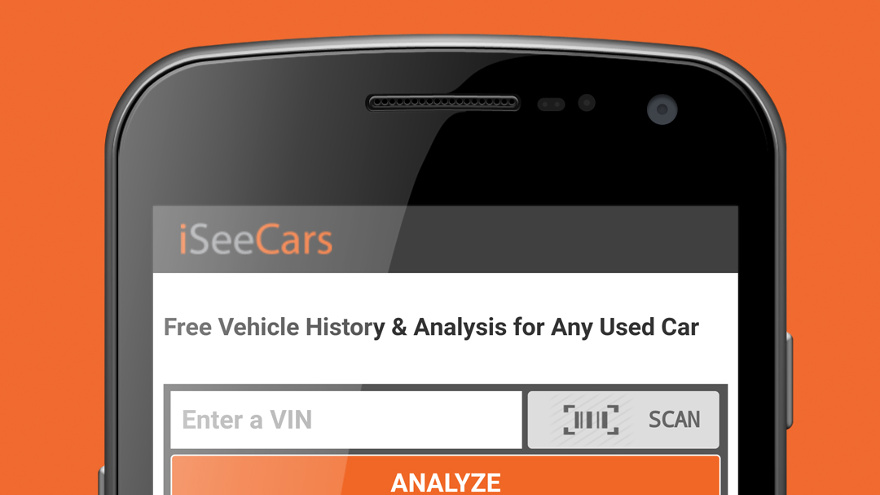OnApproach wants another characteristic of credit unions to be as synonymous to those financing providers as their reputation and servicing to members: collaborative analytics.
And to help credit unions leverage the possibility of collaborate analytics, OnApproach recently established a pathway for institutions to access new tools that’s familiar to anyone with a smartphone: an app store.
OnApproach, which says it’s the credit union servicing organization (CUSO ) dedicated to credit union success through a collaborative analytics ecosystem, launched the Credit Union App Store (CU App Store). The CU App Store is the online marketplace for credit unions to discover and immediately access applications designed to solve a variety of business problems and improve data and analytical capabilities for all credit unions.
OnApproach explained the CU App Store was developed because it is too often that credit unions must “re-invent the wheel” by building reports and dashboards that are similar across their peer groups. OnApproach insisted this process creates incredible inefficiencies throughout the industry.
As a CUSO, OnApproach wants to help transform the industry and ensure a healthy future for all credit unions.
For managers and other executives still unsure about exactly what collaborative analytics, OnApproach explained the concept in this video that’s also available at the top of this page.
The CU App Store brings together credit unions, CUSOs and industry vendors to share the time and resource burden required to execute high value reporting and analytics, regardless of technology or core. By utilizing the CU App Store, credit unions have the opportunity to shift their time from report creation to consumption and analysis of useful information.
“The launch of the CU App Store marks a major milestone in OnApproach’s vision for the credit union movement. Data analytics is imperative for the industry, but it has unfortunately proven to be a serious challenge for the majority of the credit unions to gain competency in even the first and most basic steps on the analytics journey,” OnApproach chief executive officer Paul Ablack said.
“The CU App Store finally makes it fast and easy for credit unions to search and find pre-built solutions for analytical needs,” Ablack continued. “The agnostic marketplace for sharing analytics applications is a big win for the industry, the individual credit unions and ultimately the communities they serve.”
Within the CU App Store, credit unions can access the site and shop for pre-built applications that refers to reports, dashboards or models that cover a range of credit union needs, including categories such as:
— Audit
— Channels
— Compliance
— Deposits
— Financials
— Investments
— Lending
— Management
— Marketing
— Memberships
— Payments
The applications currently available are free to credit unions and compatible with the OnApproach CU Analytics Ecosystem.
In addition, credit unions can share with or sell to their peers the applications they have built. The site also features applications developed by fintech companies and solutions providers.
To learn more, visit the CU App Store at http://cuappstore.com.
DealersLink is now offering website services to used-car dealerships interested in attractive simple, responsive websites that can generate more leads and convert more visitors.
DealersLink announced Tuesday that dealers can choose from new webpage templates designed to provide fast load times across both desktop and mobile devices.
Just earlier this year, DealersLink announced a new pricing tool that gives dealers an affordable way to monitor and manage new-car pricing at the 2018 NADA Show in Las Vegas.
In addition to pictures and videos, dealership website templates from DealersLink are designed to provide users a simple and attractive experience that also features vehicle descriptions and lead forms, according to the company.
“When we rebuilt our platform from the ground up, we started with a mobile-first design of responsiveness because everyone knows most users are starting with smartphone searches first and then transitioning to the desktop when they are serious,” DealersLink chief executive officer Mike Goicoechea said in a news release. “We built the stack on a future-proof cloud model to ensure that performance and scalability are a top priority.”
DealersLink’s responsive website templates key features include:
- Dealer branding
- Responsive and fastest loading times for best user experience
- Conversion-focused vehicle detail pages
Click here for more information.
HyreCar is looking for investors to provide quite a financial lift to the car-sharing start-up via a $10.5 million initial public offering.
In explaining the need via its filing submission to the Securities and Exchange Commission, HyreCar acknowledged two dozen risk factors to its business that’s based on a peer-to-peer vehicle sharing platform that can allow anyone to rent their idle vehicles to on-demand drivers active on major ridesharing services such as Uber and Lyft.
HyreCar plans to offer 2.1 million shares of its common stock at a public offering price between $5 to $6 per share. Hyrecar intends to list its common stock on the Nasdaq Capital Market under the ticker symbol HYRE.
Network 1 Financial Securities is the managing underwriter for this offering.
According to the SEC filing, HyreCar closed 2017 by generating revenues of $3,223,874 but incurring a net loss of $4,271,732. A year earlier, the company earned revenues of $515,437 and incurred a net loss of $866,676.
The company acknowledged those financial challenges are making the funds generated through an IPO so crucial.
“We intend to rely on debt and equity financing for working capital until positive cash flows from operations can be achieved, which may never occur,” HyreCar said in its SEC paperwork. “We have incurred operating losses since inception. These matters raise substantial doubt about our ability to continue as a going concern.
“Throughout the next 12 months, we expect to fund our operations from additional debt and/or equity offerings, and increased revenue from our operations,” the company continued. “If we cannot raise additional short-term capital, we may consume all of our cash reserved for operations. There are no assurances that we will be able to raise capital on terms acceptable to us.
“If we are unable to obtain sufficient amounts of additional capital, we may be required to reduce the scope of our planned development, which could harm our business, financial condition and operating results,” the company went on to say.
Before making those points in the filing, HyreCar recognized 24 different risk factors, such as:
— Limited operating history makes it difficult to evaluate current business and prospects and may increase the risks associated with an investment.
— If the company does not effectively expand and train it sales team, HyreCar may be unable to add new customers or increase listings or rentals on its platform, and its business will be adversely affected.
— Fluctuating economic conditions make it difficult to predict revenue for a particular period, and a shortfall in revenue may harm its operating results.
— HyreCar does not have written contracts with either Uber or Lyft and its current relationships with either of these companies could change in the future, which could adversely affect its revenues.
So why would an investor take on this much risk and buy HyreCar stock? According to an infographic produced and distributed by the company before the SEC filing, there are 50,000 drivers signing up each month to participate in services such as Uber and Lyft.
HyreCar projects that the ride-sharing industry to be worth $600 billion by 2024.
Using its platform, HyreCar explained in the SEC filing that vehicle owners can post their cars to its marketplace and drivers can browse inventory prior to rental. Once a driver finds a car, he or she creates a profile, enters his or her personal information and credentials (including, address, city, state, copy of applicable state issued driver’s license, Uber or Lyft credentials and Social Security Number) and submits a credit card or debit card for payment.
HyreCar then performs a criminal background check, DMV driving record check, Homeland Security Watch-list and Sex Offender database check.
“HyreCar’s screening criteria is stricter than Uber and Lyft’s background check. We are focused on maintaining a safe user experience and ensuring that all transactions between owners and drivers are processed through a secure web platform,” the company said in the SEC paperwork.
“We believe we have a competitive advantage with our commercial automobile policy that covers both owners and drivers,” HyreCar also said in its federal filing. “The policy is specifically designed to cover the period of time in which a driver is operating an owner’s vehicle while not actively operating a vehicle on a ride-sharing platform, such as Uber or Lyft.
“During the periods when drivers are actively operating on a ride-sharing platform, the insurance defaults to the state mandated insurance provided by the applicable ride-sharing company. To our knowledge, we are the only provider of this car-matching service which is made possible by this unique insurance product,” the company went on to say.
Another way blockchain is working its way into the automotive industry rolled out this past weekend as the technology world gathered in the Big Apple for the start of the first New York City Blockchain Week.
CarBlock, a blockchain-based transportation solution built on data generated by smart devices announced that it has joined MOBI — the Mobility Open Blockchain Initiative — to explore blockchain and distributed ledger technology (DLT) for use in the development of a digital mobility ecosystem that could make transportation safer, more affordable, and more widely available.
CarBlock is collaborating with the MOBI and other industry, government, and non-profit partners to foster a digital environment where users — both businesses and consumers — may securely record driving data, manage ride-share and car-share transactions, and store vehicle identity and usage information.
Blockchain technology can send information over a network of independent computers, known as a distributed ledger, intended to ensure that transactions are secure and data privacy, ownership rights, and integrity are protected. CarBlock and its partners believe that blockchain technology may create transparency and trust among users, reduce risk of fraud, and reduce frictions and transaction costs in mobility, such as fees or surcharges applied by third parties.
“We believe in MOBI and its broad abilities to revolutionize the transportation industry. We can see its potential in a variety of use cases, including the ability to expand our own offerings and service more drivers,” said Julie Wang, co-founder and head of ecosystems at CarBlock.
Through an open-source approach to software tools and standards, the MOBI consortium hopes to stimulate more rapid and scalable adoption of blockchain technology applications by other companies developing autonomous vehicle and mobility services. CarBlock said it is pleased to join MOBI to collaborate with global partners on the development of blockchain-enabled vehicle data and mobility services applications.
Initially, CarBlock will be working with MOBI on projects related to:
—Vehicle identity, history and data tracking
—Supply chain tracking, transparency, and efficiency
— Autonomous machine and vehicle payments
— Secure mobility ecosystem commerce
— Data markets for autonomous and human driving
— Carsharing and ride-hailing
— Usage-based mobility pricing for vehicles, insurance, energy, congestion, pollution, infrastructure, etc.
“I'm excited that MOBI is coordinating this initiative to use blockchain technology to create a more open platform where users, owners, mobility service companies, and infrastructure providers can better control and monetize their assets, including their data,” said Chris Ballinger, chief executive officer of MOBI.
“Our hope is that other industry stakeholders will join this effort to accelerate the adoption of this technology to create a new ecosystem of clean, safe, on-demand, reliable and affordable transportation.”
MOBI’s partners also include Bosch, General Motors, Ford, Renault and many others as highlighted in this previous report from Auto Remarketing.
CarBlock and MOBI launched its partnership at a celebration last Friday at the Manhattan Classic Car Club during New York City Blockchain Week.
The launch party was attended by nearly 200 guests, including industry executives, investors, thought leaders, partners and media.
CarBlock highlighted many of its partners, including MOBI, Your Mechanic and nonda, all of which are “thrilled to be partnering with a company who is set to take the transportation data industry by storm,” according to those firms.
“CarBlock is doing something that is desperately needed within the transportation industry,” said Ivan Chong, vice president of worldwide sales at nonda, a provider of app-enabled automotive accessories. “We are thrilled to be able to partner with someone so innovative and bring our own users expanded benefits and better control over their own driving data.”
As participants in the blockchain transportation industry, CarBlock said it is working to give driver’s the ability to control, and profit, off their own data by connecting drivers and providers via their ecosystem.
The company is adding new partners and has seen a huge interest by both the investor and innovator communities alike.
“We are honored to be able to host such a fun event where everyone can celebrate CarBlock, learn about what we do and network with people from around the globe,” said Christina Lockwood, head of community and communications at CarBlock.
“Often these types of events are strictly geared at industry professionals. However, we wanted to share our story with the greater New York community because CarBlock’s ultimate goal is to ease pain points and provide access to all drivers,” Lockwood went on to say.
Machines might be handling more queries from auto finance company customers with potential results that human representatives continually strive to reach but perhaps fall a little short.
One of the experts who spoke during the International Auto Finance Network Conference hosted by White Clarke Group back in January described how this approach uses artificial intelligence to transform the way companies handle customer service calls and to improve satisfaction and build loyalty.
Benji Stone, customer success lead at Digital Genius, outlined how AI can help customer service operations, using statistical software that can ingest huge amounts of historical data.
“You can either have AI trying to replace your staff, and trying to completely take away the human work, or you can have the AI trying to augment your staff, trying to aid your staff and make them more efficient,” Stone said.
“It’s kind of like the difference between the Terminator and Iron Man. The Terminator takes over the job; Iron Man kind of augments it,” Stone continues in this video available here and at the top of this page.
Along with the launch of a new Vovlo Cars joint venture with Google to embed services into the Swedish automaker's infotainment system, recent technology development in the industry includes new augmented reality tech from Mercedes Benz USA and Kia Motors America, as well.
Volvo Cars announced Monday that customers can now access Google Assistant, Google Play Store, Google Maps and other Google services through its newly enhanced Sensus infotainment system.
“Bringing Google services into Volvo cars will accelerate innovation in connectivity and boost our development in applications and connected services,” Henrik Green, senior vice president of research and development at Volvo Cars said in a news release. “Soon, Volvo drivers will have direct access to thousands of in-car apps that make daily life easier and the connected in-car experience more enjoyable.”
In addition to thousands of additional apps available through the Google Play Store, apps and services developed by Google and Volvo Cars have also been embedded.
This new venture builds on the strategic relationship between Volvo Cars and Google. Last year, Volvo Cars announced that the new generation of its infotainment system will be based on Google’s Android platform.
“The Google partnership is an important strategic alliance for Volvo Cars,” Green explained. “The Android platform, Google services and Google’s working relationship with app developers in-house and worldwide will help us further improve the Volvo car experience.”
In other tech news, a new service from Mercedes employs augmented reality technology to provide customers a new way to explore vehicle features.
Mercedes-Benz USA recently announced that 2018 E-Class and 2018 S-Class drivers can now obtain computer-generated vehicle information in real-time by scanning the controls and displays inside their cars.
Customers can get an answer to questions about operating their vehicle in real time without having an owner's manual by using their smartphone camera instead.
The system is designed to explain unknown functions to the customer via text descriptions, photo and video content. There’s also an option for customers to request a direct link to sections of the digital owner's manual.
Meanwhile, last week the Kia brand also announced a new augmented technology venture with Facebook to enhance its digital assistant for Facebook Messenger.
The Korean automaker introduced its newly enhanced digital assistant at Facebook's annual F8 developer conference this year.
Kia’s Facebook page and Kia.com website can now provide a more immersive experience in conjunction with Kia's second-generation digital assistant, according to the automaker.
Access to key vehicle information from iSeeCars to help in car-buying decisions has gotten a bit easier with the help of a new app from the company.
iSeeCars.com recently announced the launch of its free VIN Report for Used Cars app.
The new app enables shoppers to easily scan a vehicle’s VIN barcode with their phones and get instant access to an iSeeCars VIN Report.
“Consumers can simply scan the VIN barcode of a vehicle as they walk a dealer lot and have instant access to the key things they should check before making a purchase,” iSeeCars.com chief executive officer Phong Ly said in a news release.
“This invaluable resource equips consumers with the essential information they need to have a smarter dialogue with the seller and negotiate a better price.
“Our car search engine has saved shoppers over $150 million to date, and we created this service to make our data accessible when consumers need it the most,” Ly continued.
With a combination of proprietary analyses and statistics from 25 billion data points, the iSeeCars VIN Report offering can provide up to 200 pieces of information, according to the company.
iSeeCars said VIN Report data is ideal for when shoppers have questions such as: Can I find a better price nearby?; Are there lots of similar vehicles for sale locally?; How much will this car be worth in five years? or When is the best time to buy a car like this?
Along with vehicle information that specifically compares dealers’ price competitiveness and transparency, key pieces of insight provided by the app include the following list of topics:
- Price analysis
- Selling history
- Projected depreciation
- Supply analysis
- Best time to buy
- Theft record
- Open recall
- Vehicle history
- Title/lien info
In addition to scanning the VIN barcode with the new app, or entering a VIN number at iseecars.com/vin, iSeeCars VIN Report is also available as a Google Chrome extension.
Via the extension, car buyers and sellers can easily research each VIN number it detects on any website browsed by shoppers.
“Our VIN Report helps consumers save time and money and provides the needed transparency to the often mysterious and tedious process of buying a used car,” added Ly. “We made it free so people can easily access helpful and insightful information to empower them to have a smarter conversation with the seller and negotiate a good price.”
DriveTime retails a lot of metal to consumers through its nationwide footprint of dealerships.
Now the company wants to help its inventory buyers acquire necessary units from the wholesale space.
Earlier this week, DriveTime announced what it’s dubbed the “Genius Way to Buy a Car” at auctions with the launch of Buyonic.
Available on either desktop or mobile device, DriveTime explained Buyonic is an internally developed application to streamline, automate and reinvent the auction purchasing process.
“We’re excited about the features and early successes of Buyonic,” said Peter Hermes, managing director of inventory at DriveTime.
The features of Buyonic include:
• Pre-filtered vehicle lists guiding buy strategy and live auction actions
• Recommended purchase values
• Live performance tracking
• Capture estimated reconditioning value
• Real time adaptability on purchasing needs
“We began piloting Buyonic with our online buyers beginning in December of last year, and it is now in use with all of our in-lane and online buyers,” said Maureen Needham, director of IT for inventory at DriveTime.
“We are already planning enhancements including recommended delivery location and automated condition report evaluation,” Needham said.
Colin Bachinsky, vice president of inventory, elaborated as to why DriveTime is taking on this endeavor.
“While continuing to be a leader in automotive digital retailing, DriveTime is also innovating in other areas of our business,” Bachinsky said. “Long term, we expect our most recent innovation, Buyonic, to help us capture the entire inventory life cycle of auction, purchase and reconditioning data, allowing us to strategically use the information to win more bids at a better price with lower reconditioning costs, while continuing to provide our customers with high-quality vehicles.
“We’re just beginning to scratch the surface of the quality, efficiency and cost reduction opportunities,” he went on to say.
For more information on DriveTime, visit drivetime.com.
Dealers who employ the Selly Automotive CRM can now make critical inventory decisions with the help of a newly added market intelligence tool for inventory and pricing.
The company announced Friday that it has partnered with VINFactor to make its market intelligence tool available to dealers via the Selly Automotive CRM.
“We have been working hard with VINFactor in Q1 2018 to develop and integrate their market data tool into Selly,” Selly Automotive chief executive officer Zach Klempf explained in a news release. “Steve and his team have put together a wonderful product offering that complements our CRM platform for auto dealerships.
“We strive to provide Selly dealers with the latest and greatest technology to help drive sales and conversion.,” Klempf continued.
Dealers can find market intelligence data from VINFactor embedded into Selly’s inventory module, according to the company.
The real-time pricing and inventory recommendations provided by VINFactor has made the Selly Automotive CRM more relevant and actionable.
Real-time pricing and inventory recommendations from VINFactor, make the product much more relevant and actionable, according to VINFactor CEO and founder Steve Greenfield.
“Providing Selly Automotive customers with real-time pricing and inventory recommendations from VINFactor makes the product much more relevant and actionable,” Greenfield said. “We’ve known Zach and the Selly team for years, and appreciate the partnership with their dealers.”
Moblie car buyers can now access ActivEngage's ActivOne live chat solution via LotLinxAMP vehicle display pages.
ActivEngage is the latest certified chat partner to join the LotLinx Mobile-Optimized AMP Program, the company announced Monday.
This news follows ActivEngage's December integration with 700Credit to offer users the ability to pull credit inside chat conversations.
"We're excited to offer dealers an integration that connects them with today's mobile-first shoppers in real time," ActivEngage vice president of business development Eric Schlesinger said in a news release. "Twenty percent of ActivEngage leads include a sales appointment. By combining our industry-leading chat solution with LotLinx's mobile-optimized VDPs, we can deliver more ready-to-buy car buyers to the showroom."
In addition to the integration, ActivEngage and LotLinx also have plans to release a joint car buyer conversion report about the impact of online chat.
The joint report will discuss the importance of online chat conversions and its influence on in-store sales, according to ActivEngage.
"Our technology always focuses on dealers' needs, added Keith Schuyler, LotLinx vice president of client services. "Our certified partnership with ActivEngage is a powerful way for dealers to drive high digital ROI."












